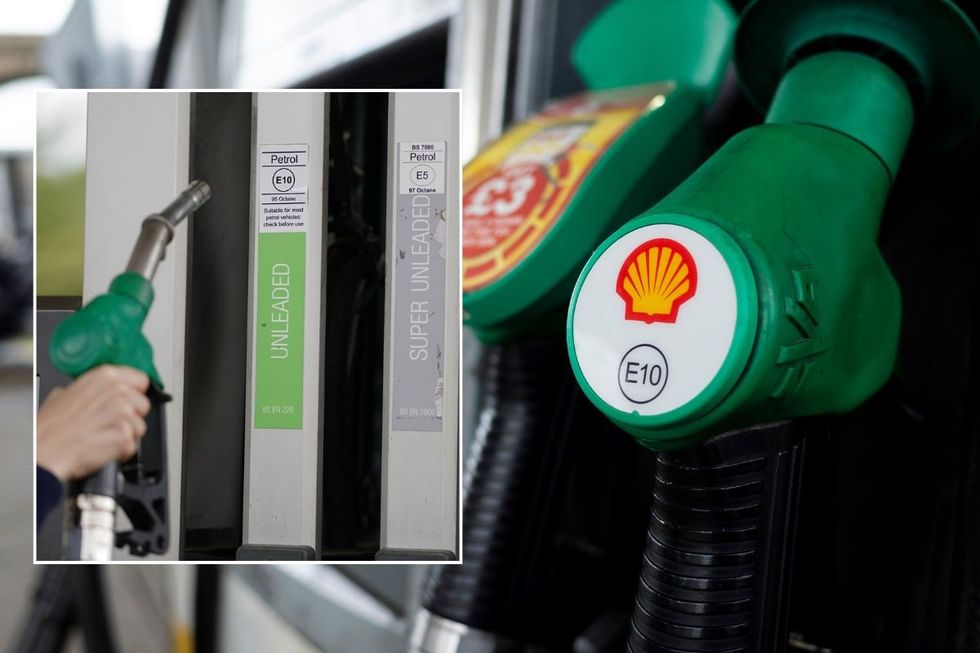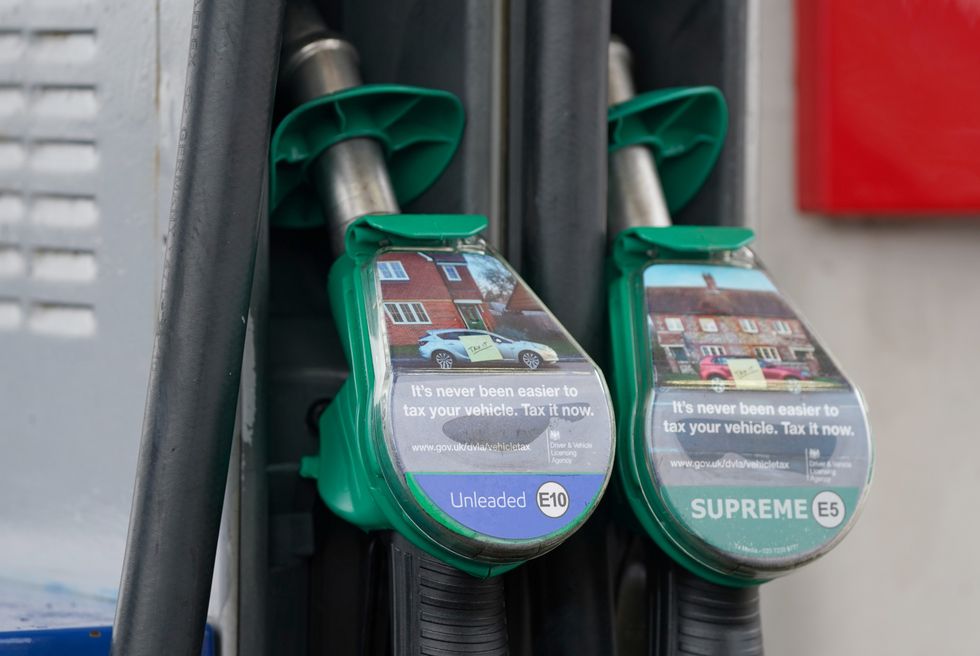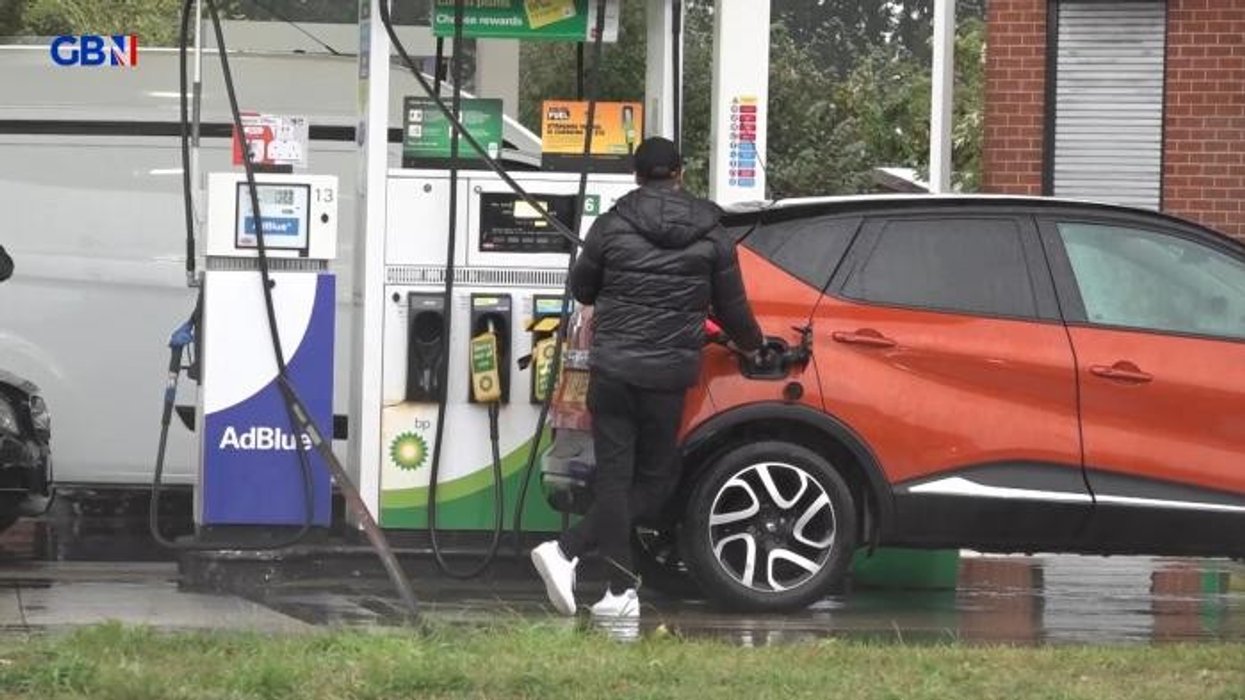Major fuel station change has 'contributed significantly' to spike in petrol and diesel prices

Using E10 petrol can lead to a one per cent drop in fuel economy, although this is unlikely to be noticeable
Don't Miss
Most Read
Latest
Research has found that the UK's switch to greener E10 petrol has forced fuel prices higher for drivers across the country, almost four years after it was introduced.
In September 2021, filling stations in England, Scotland and Wales saw new changes introduced to the standard grade of unleaded petrol, while Northern Ireland welcomed the fuel in November 2022.
The rollout of E10 was backed by the Government as a green initiative to slash harmful emissions from petrol cars, while maintaining support for internal combustion engine vehicles.
E10 petrol contains up to 10 per cent of renewable ethanol, while the previous standard grade, E5, only contained up to five per cent renewable components.
Do you have a story you'd like to share? Get in touch by emailing motoring@gbnews.uk

A recent study found that E10 and renewable fuel targets forced up the price of petrol and diesel over the last five years
|GETTY/PA
Before the rollout, the Government said it would cut transport CO2 emissions by 750,000 tonnes a year, or the equivalent of removing 350,000 cars from roads.
However, research from the University of Warwick reported that the Renewable Transport Fuel Obligation, of which E10 falls under, has added costs to fuel prices.
The data showed that over the past five years, the RTFO has added an average of 3.5p per litre to unleaded petrol and six pence to diesel.
The study, conducted by Dr Nikhil Datta and Johannes Brinkmann, published by the CAGE Research Centre, reported that the increase was a result of rising biofuel prices and escalating RTFO obligations.

E10 fuel has been on forecourts across England, Scotland and Wales since September 2021
| PAIt reported that RTFO has "contributed significantly to volatility" in fuel prices, prompting price spikes of up to 8p for petrol and 14p for diesel in late 2021 and mid-2022.
Dr Nikhil Datta, Assistant Professor of Economics at the University of Warwick, noted that with current net zero targets, E10 and the RTFO provide a "net-benefit" to the UK.
"We carried out this analysis to understand how the RTFO affects fuel prices at the pump for consumers and compare that to the benefits of the policy.
"The most striking finding was how volatile biofuel prices, especially biodiesel, has resulted in fluctuating prices for consumers," Dr Datta said.
LATEST DEVELOPMENTS:
E10 fuel also had an impact on the fuel economy of the vehicle, with an expected reduction of around one per cent, with the Government noting that it is "unlikely to be noticeable in everyday driving".
It pointed to other factors as having a larger impact on fuel economy than using E10 fuel, including driving style or driving with a roof rack.
Around 95 per cent of petrol-powered vehicles on the road can use E10 fuel, although many classic cars are not compatible with the cleaner fuel.
While the rollout of E10 as the new standard was publicised by the Government with the "know your fuel" campaign, E5 continues to be sold at filling stations around the UK.
Petrol vehicles that are not compatible with E10 can still use E5, which has moved to the "super" grade of unleaded petrol (97+ octane). This is still available at most filling stations across the UK.
E10 has been the reference fuel for which new cars are tested for emissions and performance for almost 10 years, with the standard grade of petrol being used in Australia and across much of Europe.
At present, unleaded petrol costs 134.64p per litre on average, while diesel motorists are paying 141.95p, RAC Fuel Watch states.
No changes to prices are forecast in the near future, although drivers are consistently advised to avoid filling up at motorway service stations as they could pay as much as 25p more per litre.











